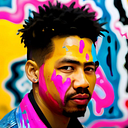The Forgotten Drug Store of Dr. Oscar Burger
As a Spanish colony, the Philippines has always been a recipient of foreign immigrants from all corners of the mother country. Yet, there seems to be little information on other foreign nationals who ended up settling in the country during three centuries of their rule and even during the Americans’ turn to rule over the archipelago. But in the latter half of the 19th century, there was an influx of German immigrants looking for new life and perhaps, colonial adventure.
By 1871, the German nation was unified under Prussia after their massive victory against France in a brief war with Napoleon III. As a result, Germany has become one and strong industrial nation with ambitions for colonies left for grabs with the British Empire, France, and Spain still controlling vast colonies around the globe. Germany eventually settled on fringe African outposts, sparsely inhabited Pacific islands, untamed parts of New Guinea, and small concessions in China. There was also a large diaspora of Germans overseas in search of better fortune (especially the Jews).
To boost the European population in the colonies and attracting young men adventurous enough to make a name for themselves in distant lands, Spain has encouraged its citizens and even some Europeans to move into the Philippines. For us, we never thought Germans would come into the picture. Interestingly, Germans have played a big role in society at that time since most of the best doctors, chemists, and entrepreneurs in Manila and Cebu were them. Jose Rizal was even a product of German knowledge and know-how during his European stay.
By the time the Suez Canal opened in 1869, the journals of German ethnographer Fedor Jagor was the only first-hand account of the Philippines at that time. The eventual influx of German immigrants in Manila, Vigan, and even Cebu opened up new opportunities for them. The reputation of German medicine brought chemists, pharmacists, and even doctors to the colony.
In a memoir by one Dr. Heinrich “Enrique” Rothdauscher, it mentioned them setting up their pharmacy businesses in the country. The first established pharmacy, a century before we have the Rose Pharmacy chain, was the famous Botica Boie established by Reinhold Boie. Among other prominent players in the industry were Paul “Pablo” Sartorius, Willem “Guillermo” Suhm, Paul “Pablo” Schuster, and Otto Koch. Established later were Botica Sartorius and Botica Schuster.
Apart from their business, they were also keen explorers like Jagor. They recorded their experiences in these far-flung islands.
While most of the German community was concentrated in Manila, especially in the Escolta district, and others took root up north in Ilocos, another German set up his own pharmacy business and his name was Oscar Burger. Not much is known about him but he soon established his reputation as a pre-eminent German Apotheker in the city. He brought in the latest medicines from Germany especially those manufactured by the top pharmaceutical firms like Bayer.
What started as a small business soon became a large operation as he ended up supplying medicine and other medical supplies to the local elites and significant foreign expatriate community. He eventually established a large pharmacy with two caruajes providing delivery of supplies to his clients and other practicing doctors in the city.
Fellow compatriot Rothdauscher eventually moved into Cebu to head another pharmacy there. It’s not clear if he lent a hand to Burger but it would be likely that they would have collaborated since they were probably the most prominent Germans in town.
And just like any European expatriates, they get the proper treatment with all the workers taking care of the dirty business of moving in the goods from the docks to the warehouse. Some probably have to ensure that both Rothdauscher and Burger are well taken care of. By the time Rothdauscher left Cebu in 1881, the city was already ravaged by a cholera epidemic. The demand for quality drugs to combat such an epidemic went to an all-time high. As revolution later began in 1896, the pharmacy business is in the crossroads of whether providing medicine for the colonial authorities or support the revolutionaries. Either way, it’s bad for business for Burger and his business partners.
Burger’s Vigan pharmacy was sold to Sartorius thus became Botica Sartorius. Another German Apotheker eventually competed with Burger — the Botica Santa Cruz.
Although there were not a lot of Germans in the Philippines, the businesses seemed to grow because of the fact that the German pharmaceutical industry dominated global drug creation from the late nineteenth century to World War I. When the Americans later took the Philippines, some early German immigrants to the United States tried to find a new fortune in the Philippines as well.
However, that soon came to a crashing end when World War I broke out in 1914. All the Germans running Botica Boie, Botica de Oscar Burger, and Botica Santa Cruz were in trouble. The members of the staff were deported to the United States in 1918 along with other German residents.
This article was originally published in Istoryadista.
